



Posted on August 2, 2019 by Doug Robichaud
The key to becoming an amazing surfer is starting with the right surfboard for beginners. Since you’re new to the sport, finding the right beginner surfboard can be confusing because there are so many options from which to choose. Surfboards come in many shapes, sizes, and constructions, so it’s important for you to be able to seek out the best beginner options when you’re staring at the massive rack of surfboards at your local surf shop.
Today, I’m going to give you five helpful tips on how to choose a surfboard for beginners. By the time you’re finished reading all five tips, you will be confident enough to pick out the best beginner surfboard.
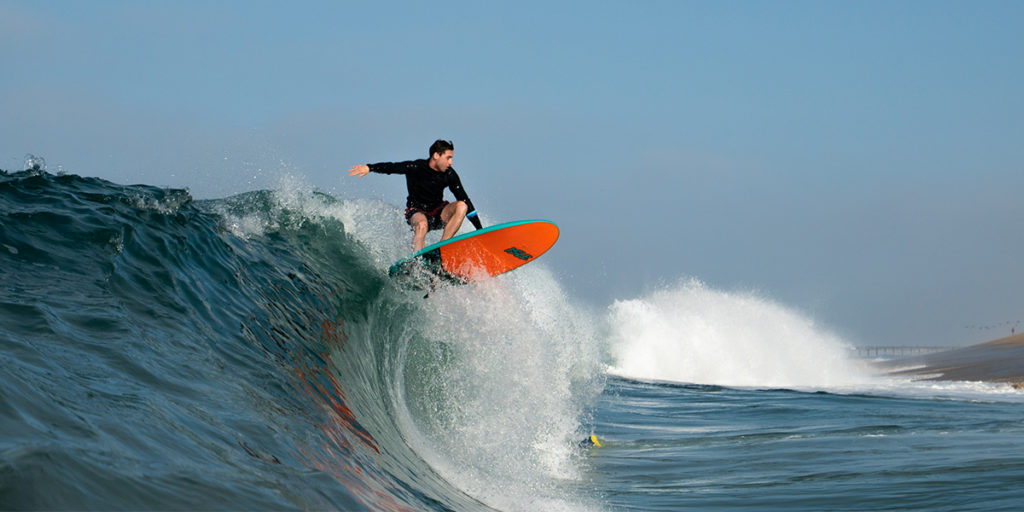
Just because you have taken a few beginner surf lessons and learned how to stand up on a foam surfboard doesn’t mean you have passed the beginner stages quite yet. Consider this rule of thumb, if you haven’t been surfing for over a year (even two years), you’re still a beginner. It takes a lot of time and dedication to learn the basics of surfing — from reading waves to speeding down the line (and there’s a whole lot more).
Before we get to the good stuff, there is one important thing you need to know. Do not get a performance shortboard if you’re a beginner. Got it? I know that performance shortboards may seem cooler in theory, but this type of surfboard is extremely hard to ride for beginner surfers. In fact, you will not get better when you learn to surf on a shortboard because they are too small, thin, and narrow for you to comprehend how to surf them. If you want to advance as a surfer more efficiently, forget about riding a shortboard (for now) and keep reading below.
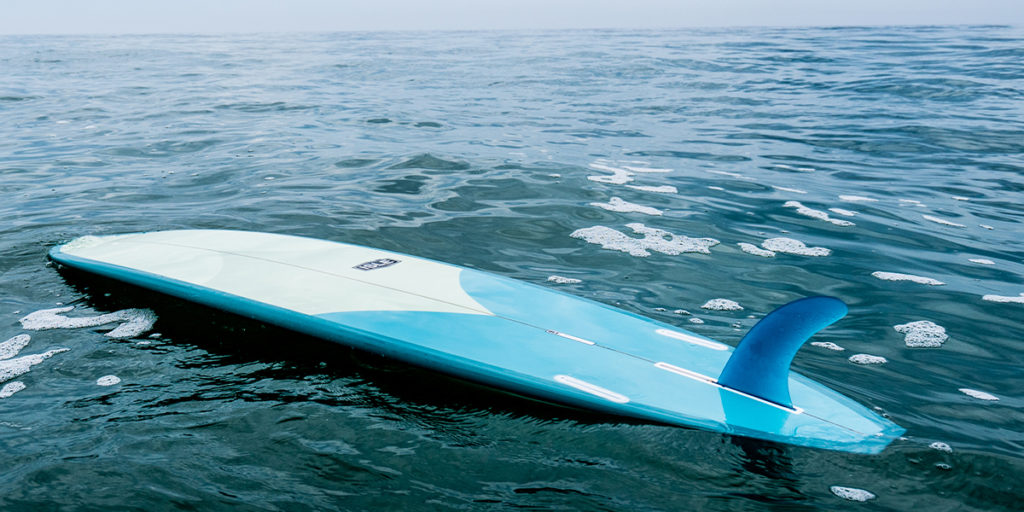
The longer (length), thicker (thickness) and wider (width) your surfboard is, the easier it will be to paddle into waves and stand up. Consider looking into funboards or longboards. These two surfboard designs are great options for beginners because they are in fact, big, thick, and wide. Not only are these surfboards easy to ride waves on, but they will also be much more forgiving when you make mistakes. As mentioned earlier, avoid shortboards because they’re the complete opposite of big, thick, and wide.
Quick tip: Your beginner’s board should be at least one foot taller than your height and at least two feet taller for kids (7-12 years old). Soft top surfboards the best option for kids.
One of the most important surfboard dimensions for you to keep in mind when choosing a beginner board is volume. The surfboard volume is defined by how much area or space your board occupies. In surfing, this equates to buoyancy. Shortboards have relatively low volume and funboards/longboards have much higher volume because they have a whole lot more foam.

Having a surfboard with a lot of volume when you’re a beginner is super important because this will make your board highly buoyant. A highly buoyant surfboard will make paddling into waves and standing up on your surfboard a piece of cake. A board with low volume will be nearly impossible to use for beginners.
Quick tip: Beginners should be riding a surfboard that exceeds 40L (liters) of volume. If you weigh more than 200 pounds, you’ll really want to pay attention to volume and buoyancy.
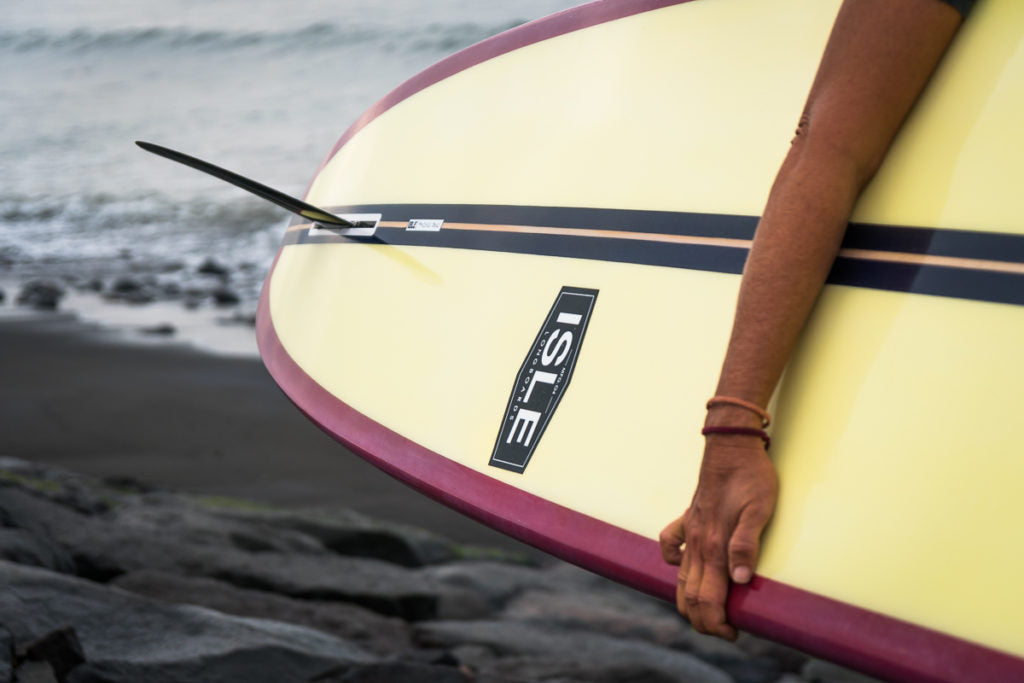
As a beginner, the tail shape and number of fins on a surfboard does not matter. Please, don’t worry about this because all it will do is confuse you. Surfboard tail shapes and fin setups will begin to make more sense once you become an intermediate surfer. For now, focus more on finding a beginner surfboard for a good bargain so you can start surfing on the regular.
Quick tip: Thrusters (three fins), quads (four fins), and single fins are all great setups for beginner surfboards.
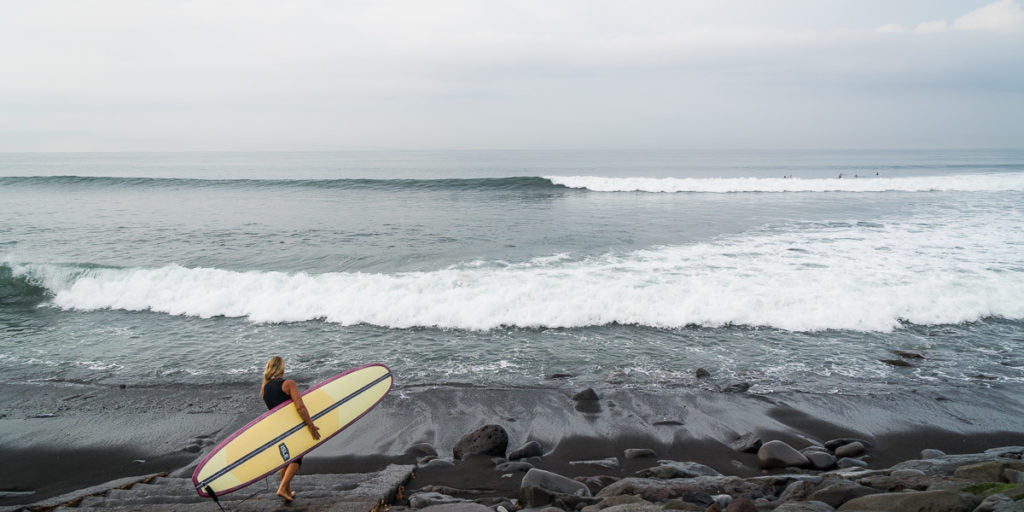
Where you live and how often you plan on surfing will dictate which types of surfboards are best for you. If you’re located in popular surf destinations (California, Hawaii, Australia, etc.) where the water consistently produces big waves, then you should consider a funboard (6-8 feet long).
A funboard is a great all-around surfboard design for beginners that works well in most conditions (small to head-high surf) and makes catching a wave easy. A funboard will be ideal to have in bigger waves because it will be easier to control and duck dive than a longboard.
Another ideal beginner surfboard design is a longboard surfboard (9-12 feet long). Longboards have an insane amount of volume, which makes them work super well in even the smallest of conditions. For surf destinations that are more seasonal like the East Coast of the USA, a longboard is a must-have during the inconsistent summer months. However, keep in mind that even popular surf destinations like California and Hawaii will still offer you those perfect small days to go surfing with your longboard.
Quick tip: Funboards, longboards, and soft top surfboards are all great beginner surfboard designs.
As a beginner surfer, it’s inevitable that you’re going to ding and scratch your surfboard. This means you should avoid spending upward of $1,000 on the custom longboard of your dreams. I recommend that you look into getting a new soft board that’s durable and more difficult to ding, or finding a quality used surfboard.
Ignore the minor flaws you see on used surfboards like yellowing on the deck and small dings (you can fix those). However, avoid all used surfboards with damage that shows foam or delamination (when the rigid fiberglass is separating from the delicate foam core).
Quick tip: Call your local surf shop ahead of time to see if they have any affordable, beginner surfboards options available.
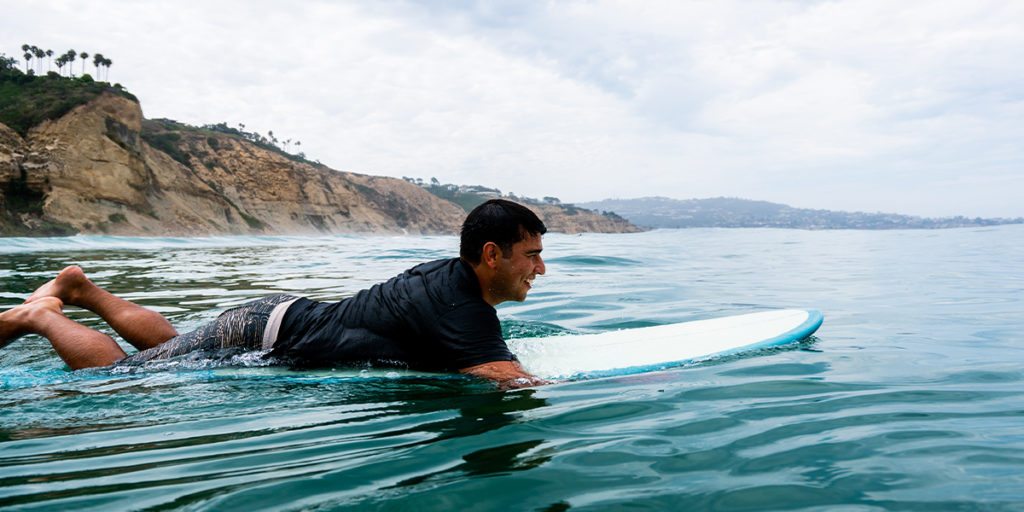
Choosing a surfboard for beginners is simple once you understand what you’re looking for. It doesn’t matter if you buy a surfboard from a friend, a local surf shop, or even Craigslist — find a surfboard with a lot of volume that will allow you to improve your surfing and move past the beginner stages quickly.
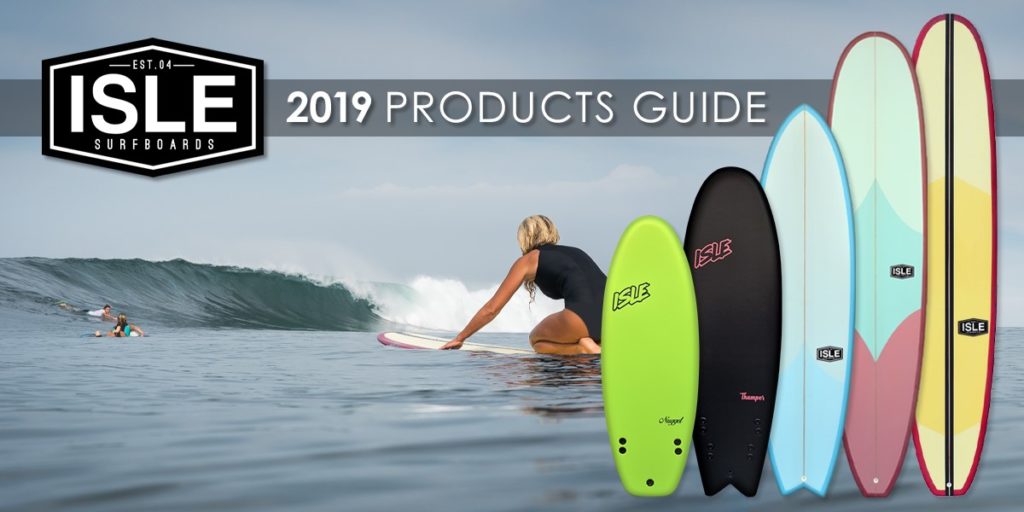
Sign up for our newsletter
Get exclusive insider access to products and promotions
Copyright © 2024 Paddle Boards and Surfboards By ISLE Surf & SUP. All Rights Reserved